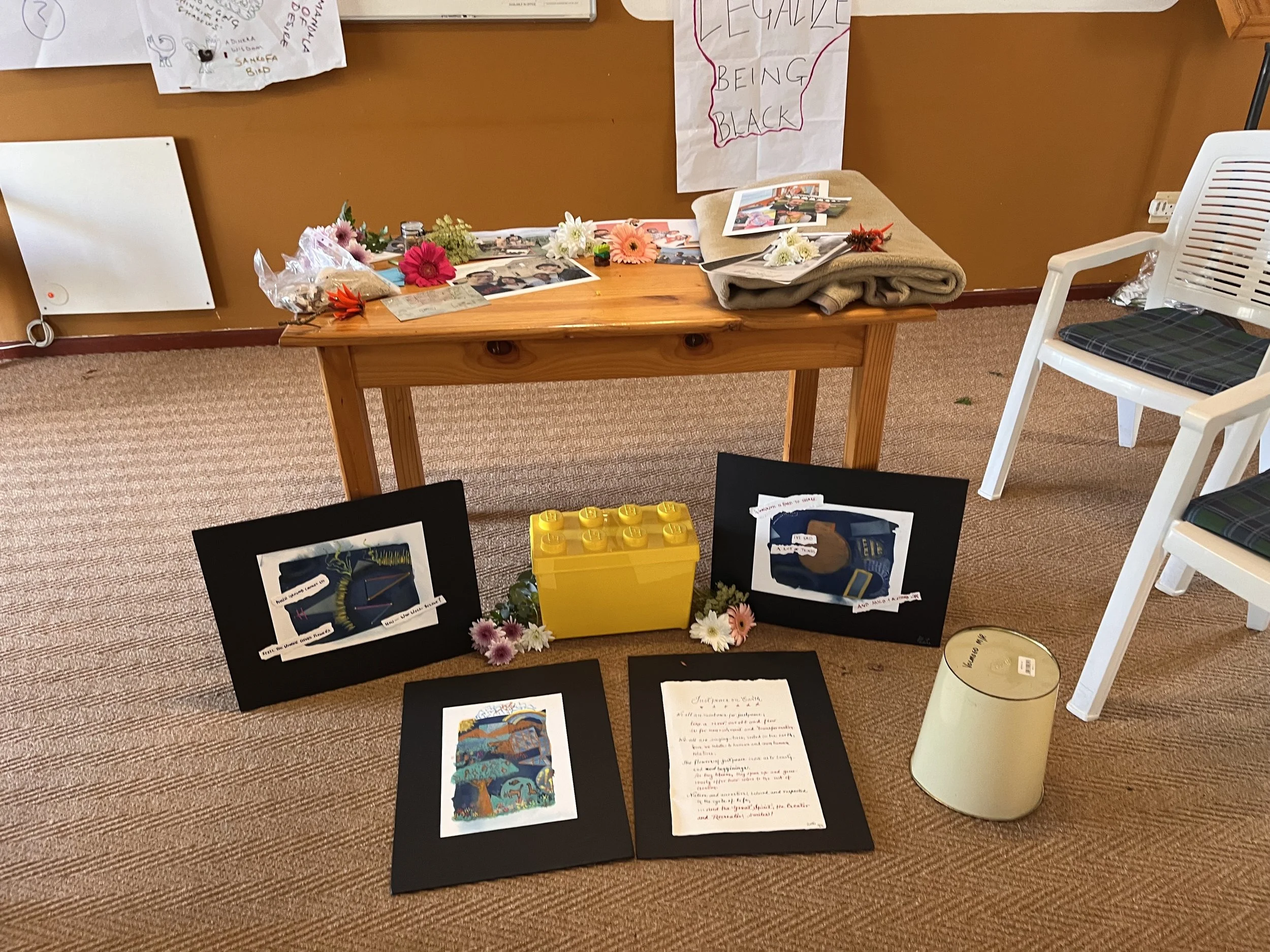The Power of Encounter
July 2024
My colleague, Billy Price, and I have been on a journey. For the past seven months, we have been walking with a group of humans who share a commitment to showing up in the world in a way that contributes to peace and justice in their communities. This takes varied forms in their diverse contexts which range from Harare to Lima to London and Minneapolis. Our journey with them through unRival’s Artisans of Peace network seeks to respond to a sense of isolation that we hear so often from people doing this work. How can we connect, know one another, discern together, and bring greater clarity and brighter energy to our work? We’ve been gathering virtually since February and recently gathered with the group face-to-face at a retreat outside of Cape Town, South Africa.
As the group gathered in South Africa, I heard one word repeatedly: encounter.
As our friends expressed their hopes for the time together, this word was repeated in rich and varied ways. They expressed hopes of getting to know people better in person. There was a lot of excitement to learn more about the diverse African, North American, European, and South American cultures represented in the group. But the desires didn’t stop there. There was a desire not only to encounter one another but to begin a journey together, to do something together.
Our focus as facilitators was on creating space that nurtured meaningful encounter. Most importantly, we created a space that was more about who we are than what we do. Rather than begin our time together with participants sharing their qualifications, experiences, and positions, we began by exploring our names and their meanings. Despite the cultural diversity of the group, we found much that resonated with everyone. We looked back to how our names connected us to our ancestors, and forward to how we have shared names with our children. We were reminded anew of the ways that fear is the currency of much of our lives, even in the social change sector – fear of doing the wrong thing or not being quite enough. Focusing on our being rather than our doing set the table of gathering differently than many of us are used to.
A critical part of encounter was creating space for creativity. The majority of our participants work in spaces where words and ideas are front and center. The “muscles” of critical thought and analysis were well-exercised. While those tools are valuable and contributed to some of our encounters as a group, we worked to disrupt normal ways of thinking and being by exercising less-used creative muscles: painting, storytelling, theater, drumming, and even a bit of building with Legos. All of this was rooted in a core assumption of AoP – in order to see more clearly we must see more creatively. One of my greatest joys was hearing laughter as participants leaned into painting “peaceful buildings,” or building a sacred community tree from Lego bricks. Strengthening our creative muscles in playful encounters with others expands our possibilities as we face the opportunities and challenges before us.
The fruits of our creativity.
The rich time with this group of Artisans of Peace reminded me that encounter truly changes us. When we are with others in honesty and authenticity, we cannot help but see the limitations of our individual selves and even the organizational communities in which we work. We can accept those limitations, rather than pretending they aren’t there or fighting against them. We can settle deeper into the complex ways that we need others and see the ways that we buttress one another. In Artisans of Peace, we seek to create a space for safe and life-giving encounter, a space where we can recognize our interdependence with others and strengthen the work of creation and co-creation that leads to true change.
I’m grateful for all we’ve experienced and all that we’ve learned on this journey. And yet I know we still have far to go. We continue to learn what it takes to create and steward nonrivalrous spaces for leaders that allow for connection and discernment. As a facilitator and program designer, the urge is always there to systematize our work, to embrace that we’ve found a better way. Some of that is good, right, and necessary. Yet I’m reminded that the sweetest moments for me as a leader and facilitator in this process have been the loving reminders from those I journey with to keep my attention on being rather than doing.
How to strike that balance? I’m still learning. But this journey with Artisans of Peace 2024 has deepened my commitment to the kinds of learning and change that emerge from encounter.
